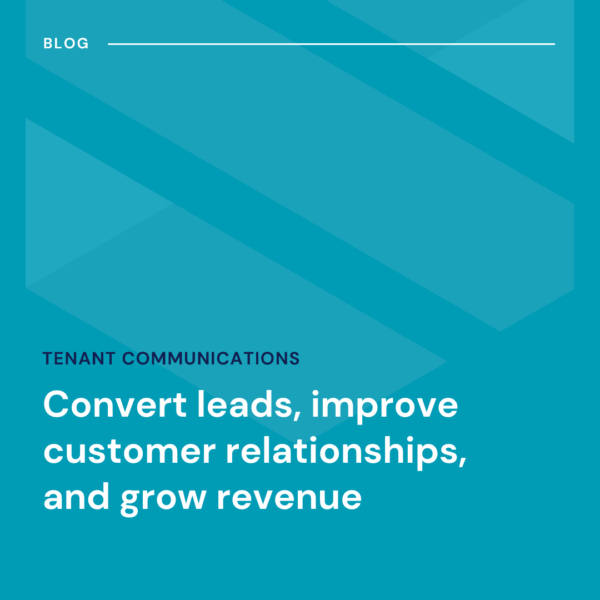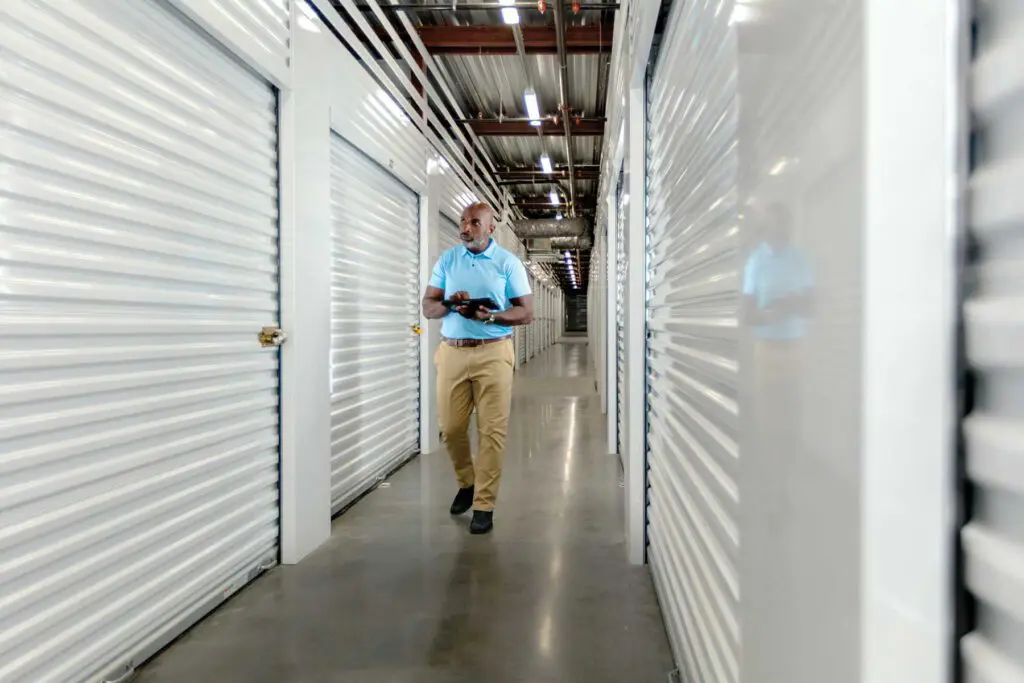Alarm bells and warning signs are everywhere that a recession is around the corner, but if, when and how deep is anybody’s guess. A Bloomberg survey of economists recently put the odds of a recession in the next year at 30 percent, up 10 percent from a year ago.
Self-storage is famously recession-proof, but that doesn’t mean everything is roses when the economy takes a hit. Successfully navigating any downturn ahead will require operators to adapt, respond and use all of the tools in their arsenal to protect the business.
With a market correction possible in the coming months (or even already here), we’ll share some possible scenarios and how they might impact the self-storage industry.
But first…

Why are some economists saying a recession is coming soon?
The last recession in 2020 was the shortest on record, lasting just two months. Before that, the U.S. enjoyed the longest recovery in history of about 128 months since the end of the Great Recession. As far as business cycles go, that is quite the anomaly considering most recessions last about a year and half. The aberration makes it harder to predict what might happen next, but there are signs suggesting a recession will be here sooner rather than later.
Here are some of the indicators to watch right now:
- The yield curve: When the yield, or investment return, of short-term Treasury notes is greater than long-term notes, that is said to be an inversion of the yield curve. Normally, short-term treasuries have lower interest rates, since long-term investments should carry more risk and more reward. An inverted yield curve suggests there is negative market sentiment for the country’s future outlook.This measure has a solid track record of predicting past recessions. In October 2021, the yield curve inverted for the first time since 2007.
- Inflation: Rising inflation often precedes recessions, and as is the case today, prompts the Federal Reserve to raise interest rates to combat it. However, this commonly contributes to a recession as borrowing becomes more expensive and spending falls.
- Unemployment: Unemployment is at a 50-year low, which means it is bound to rise at some point. Watch for signs of increased unemployment claims over the coming months, as a slight rise traditionally precedes a sharp increase in unemployment.
- Speculative bubble: It is common for markets to take a turn downward before a recession, and that is certainly what is happening now. The S&P 500 is down more than 15% since the start of the year, with tech stocks like Meta and Netflix taking huge losses. Cryptocurrency investments have also taken a nosedive, with Bitcoin down more than 37% YTD.
What would a market correction mean for the self-storage industry?
Self-storage has seen its ups and downs before. During the 2008 crash, the industry proved its recession-resilient bonafides and came out of the downturn stronger than ever.
Another hit came in mid-2020 with the arrival of COVID-19, but self-storage has been on a rally since the initial shock of the pandemic response wore off.
But there are some signs that tougher times could be ahead. One sign is the recent selloff of publicly-traded self-storage stocks following the Q1 2022 earnings, which suggests that investors’ enthusiasm for the sector is waning in light of the overall macroeconomic landscape.
The recent self-storage sector slump coincides with an overall slide in the REIT sector of 15 percent since the start of the year, however fundamentals in storage are strong. The Big 5 storage REITs command record-high occupancies going into the spring leasing season, and rental rates appear to be holding firm near record highs. However, overall fears of a recession is making some investors skittish—and some may feel that the COVID-19 boost enjoyed by the sector is coming to an end.
Below are some areas of the economy self-storage operators need to watch out for as it moves into the next phase.
Inflation
Will it stop or not? How could it hurt self-storage?
If inflation continues to rise, eventually storage prices will move from being a necessary expense to a discretionary expense for many tenants. Too much inflation will slow down the ability of operators to increase prices as more people move out of units to save money. The flip side is folks might need storage as they downsize housing – this is what happened in 2008 but that was more of a housing bubble.
Bottom line: Inflation isn’t just hitting tenants, but operators as well. Costs for products and services will likely increase, and expect more pressure to increase labor costs. This may prompt more facilities to consider unmanned operations.
https://www.storable.com/resources/learn/raising-storage-rental-rates/
The housing market
Home prices have surged more than 34 percent over the last two years, but most economists say we are not in a bubble. The housing market is expected to stay hot over the next few years as the supply of homes is severely low and demand from millennials and Generation Z remains pent up.
While median home prices keep going up, sales volume is slowing down—new home sales dropped more than 12 percent compared to a year ago. Supply chain and labor issues are slowing down the creation of new housing inventory, and many would-be first-time homebuyers are still priced out of buying at all, many times competing with institutional investors for residential property. As the Federal Reserve moves to increase interest rates, mortgages will become more expensive and slow demand for housing.
That’s already driving more demand for rentals, and this year NAR predicts rental rate growth will outpace growth in home prices. Increased prices could stir more multifamily development, but new construction faces the same challenge as other sectors.
Bottom line: It appears the housing market is entering a period of stagflation. This isn’t necessarily a doomsday scenario for storage operators—but it could soften demand for storage units if housing costs continue to outstrip what many consumers can afford to borrow.
Interest rates
With interest rates rising, borrowing money for self-storage acquisitions, construction or refinance will become more expensive. This will likely give REITs and other institutional investors an edge as they continue consolidating the industry. Extra Space Storage CEO Joe Margolis, for example, said they expect the number of bidders on deals to fall in the coming months as a result of increased rates.
Bottom line: Operators with variable rate loans will need to prepare to make bigger payments in the months to come. This could be a buying opportunity for the REITs as any distressed operators may need an exit plan.
Supply crunch
Today, we don’t have enough supply to meet tenant demand. As the above market forces play out, we may or may not see this change.
The cost of borrowing funds for new construction could lead to a worsening supply crunch for the self-storage industry. Instead, operators looking to grow will have to rely on rent increases on existing tenants.
Bottom line: Raising rents in an inflationary environment is expected, but how much you can raise them is limited by what tenants in your market will bear. With all of their expenses going up, customers might forgo insurance coverage or move out sooner than planned to save money.
Take a deeper dive with Storable
Want to learn even more about current economic trends and how they will impact the self-storage industry?
Join Storable’s Matthew Beal, senior product marketing manager, for a deep dive into current market forces and how they are impacting the self-storage industry. All signs point to a significant market correction coming soon. We’ll discuss how these trends could play out in the near future, and what storage operators can do to protect their businesses from any fallout.
The webinar takes place Friday, May 27 from 12PM to 1PM EDT.






